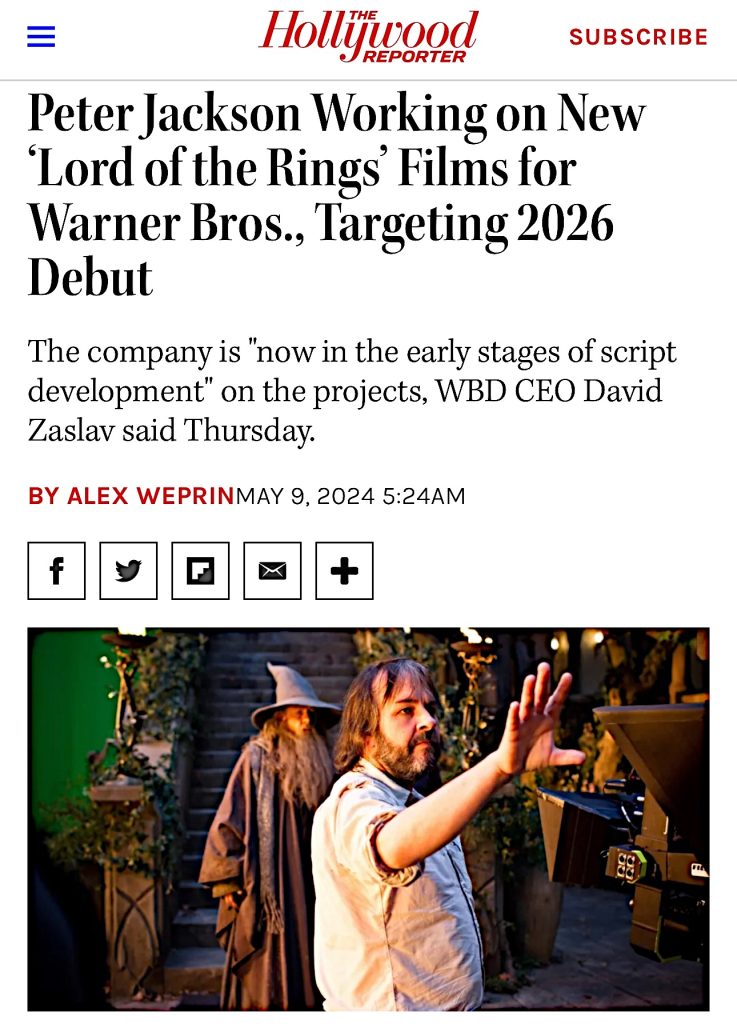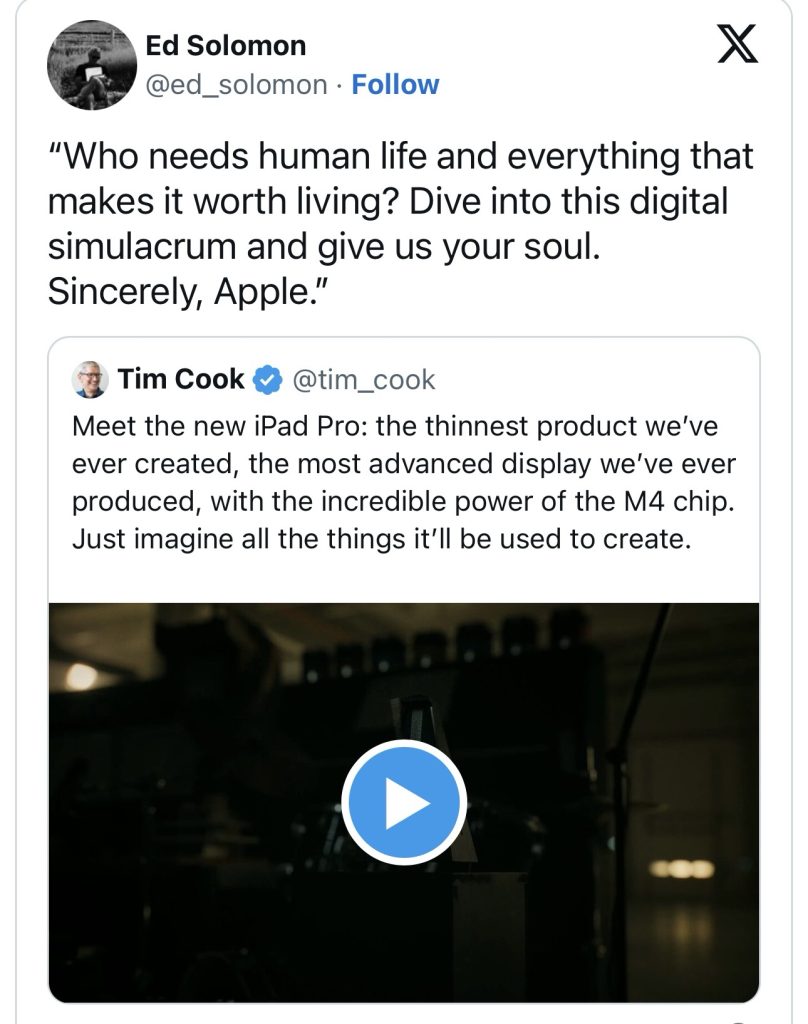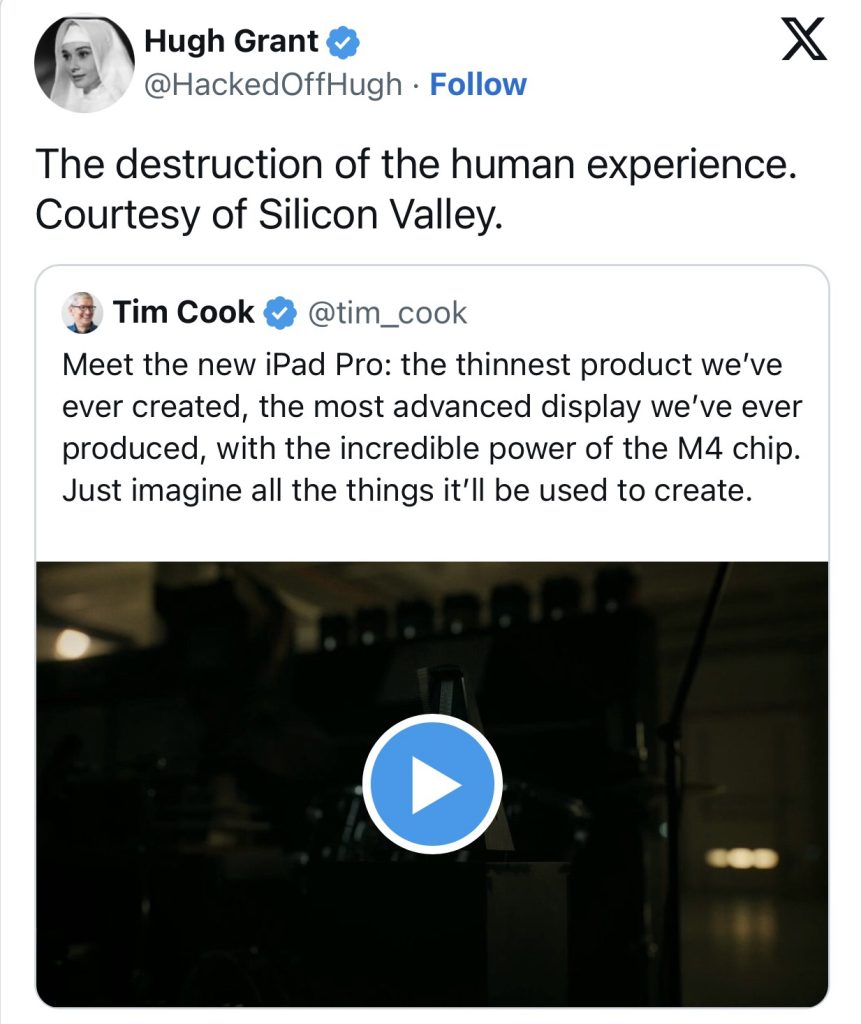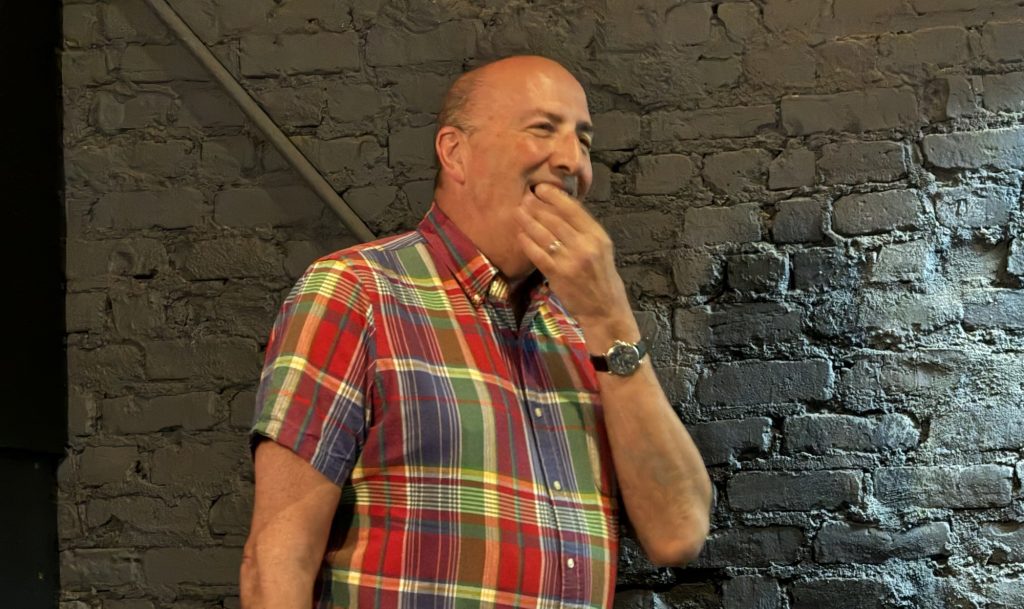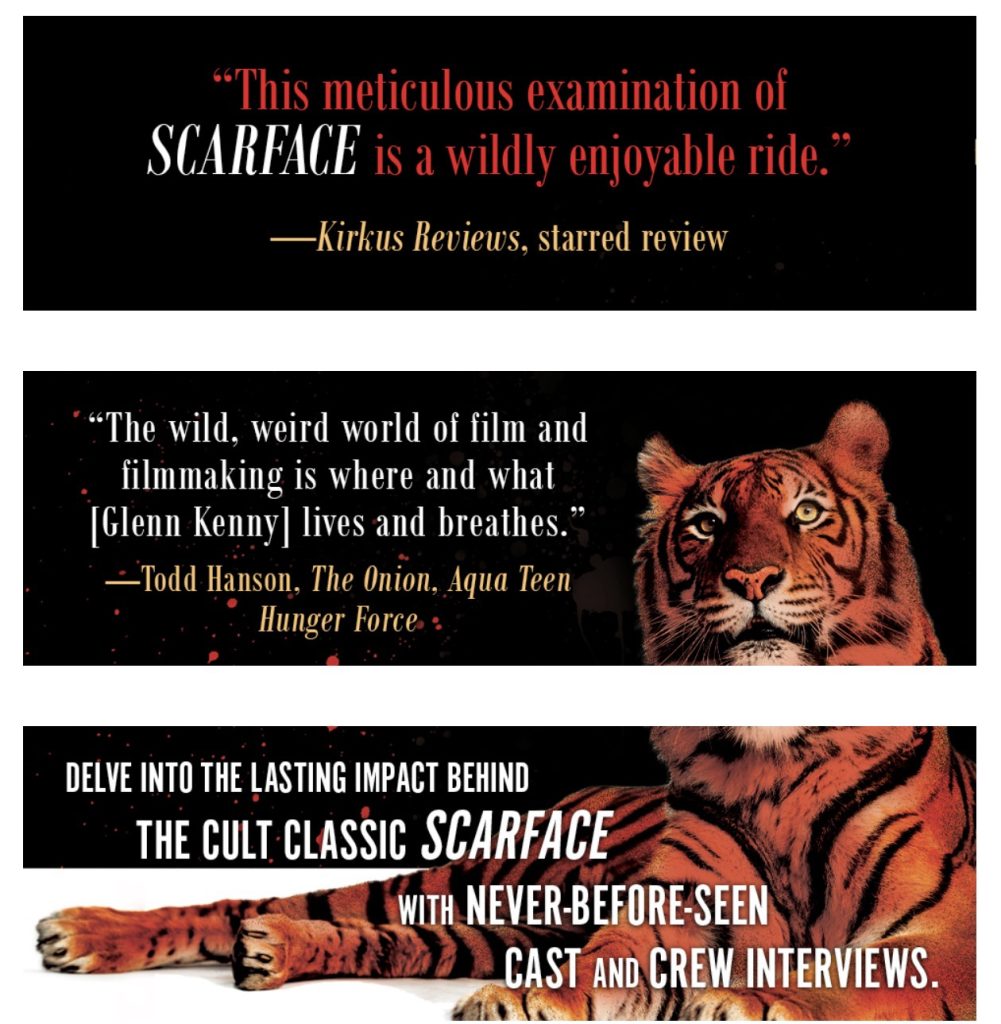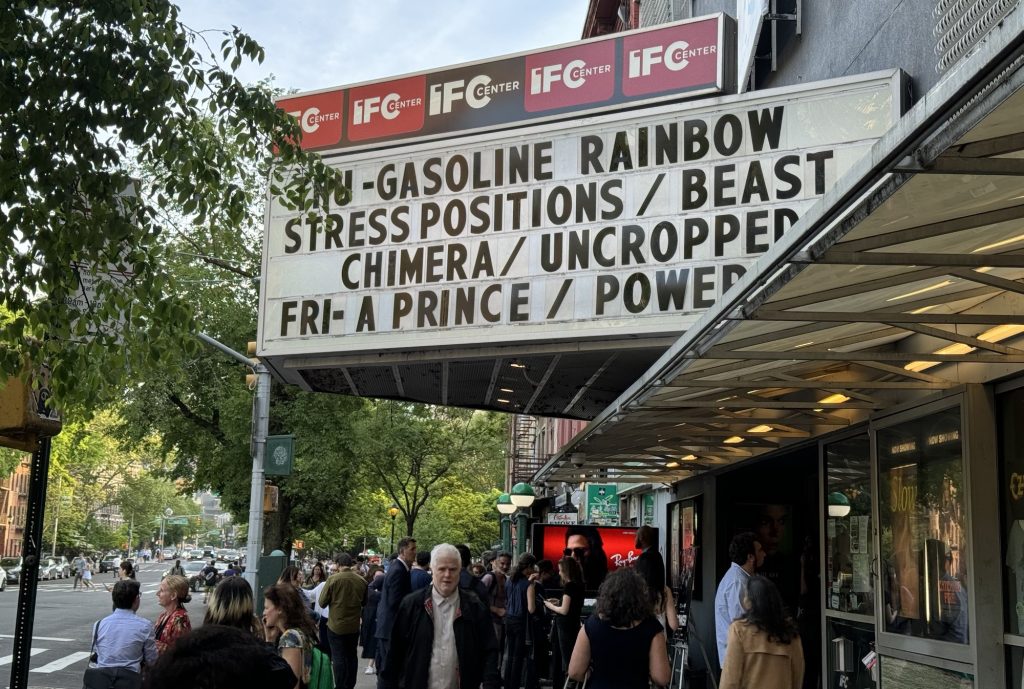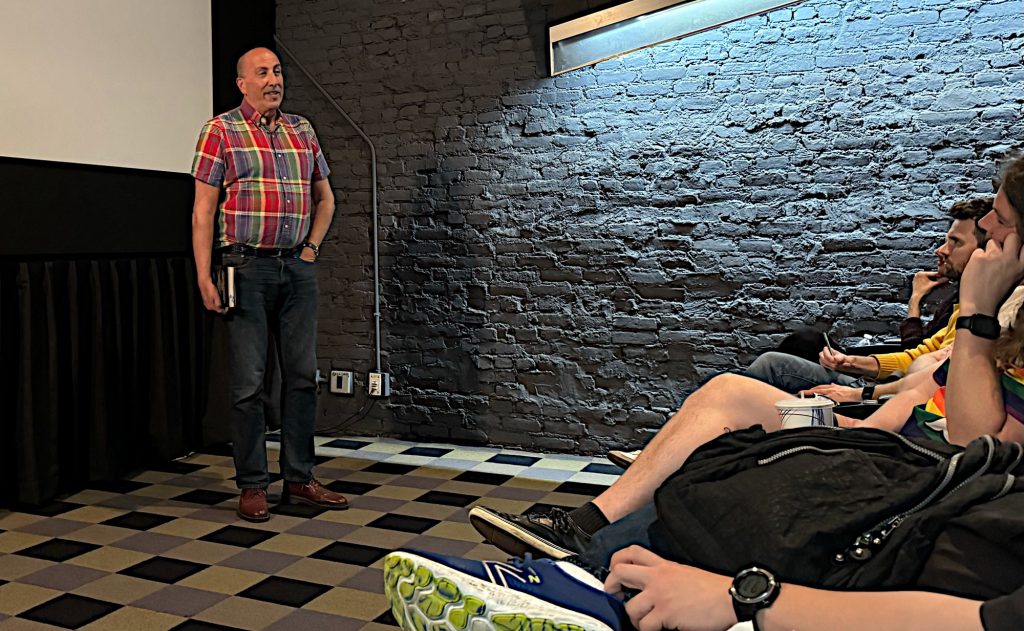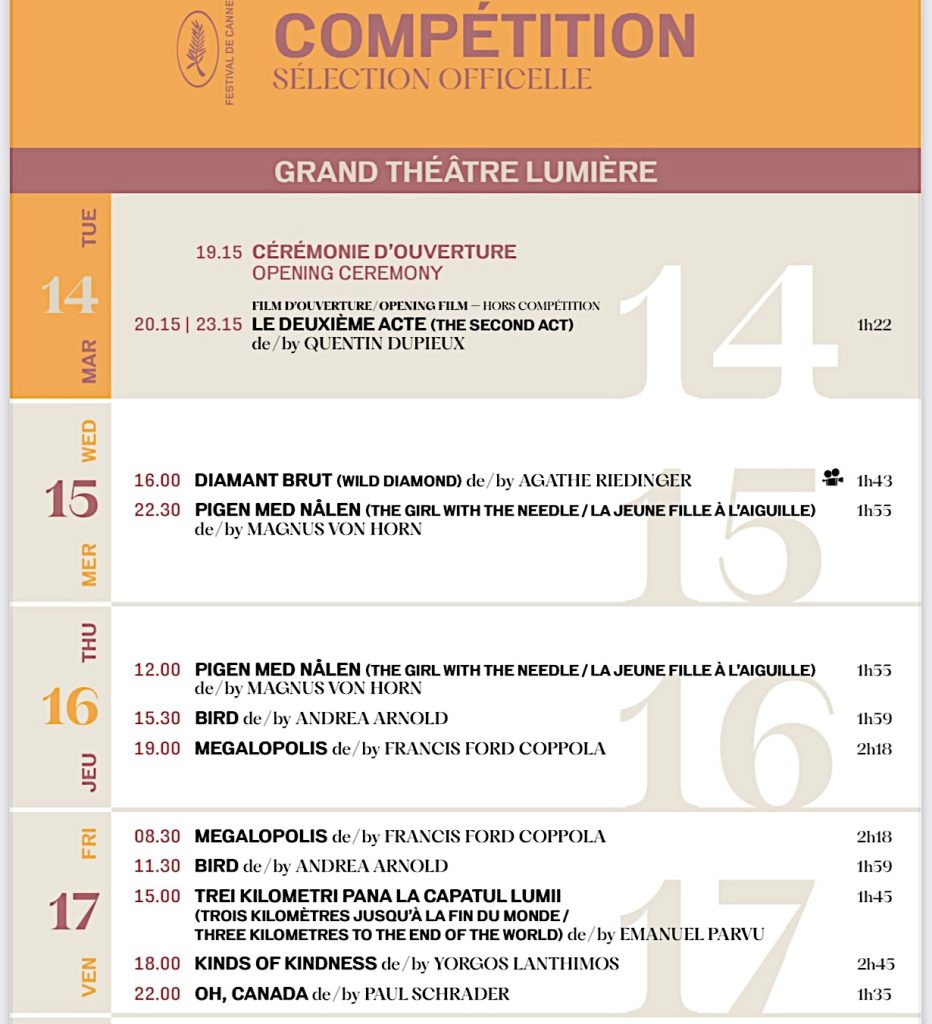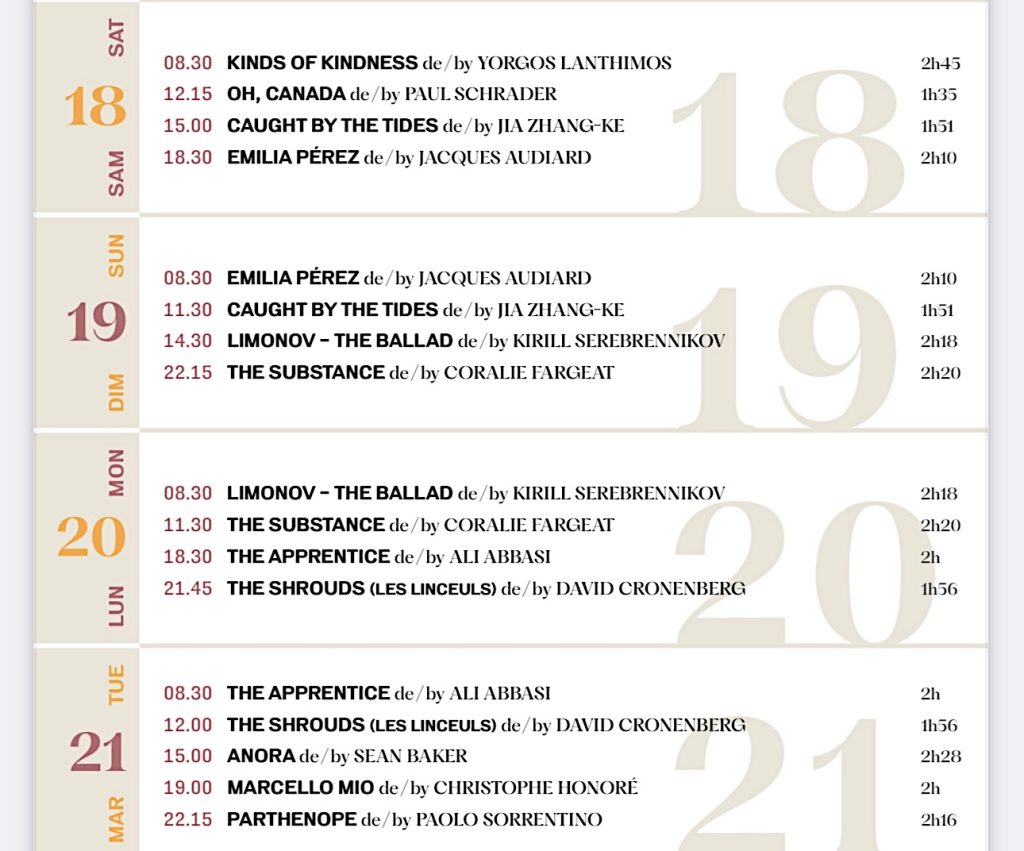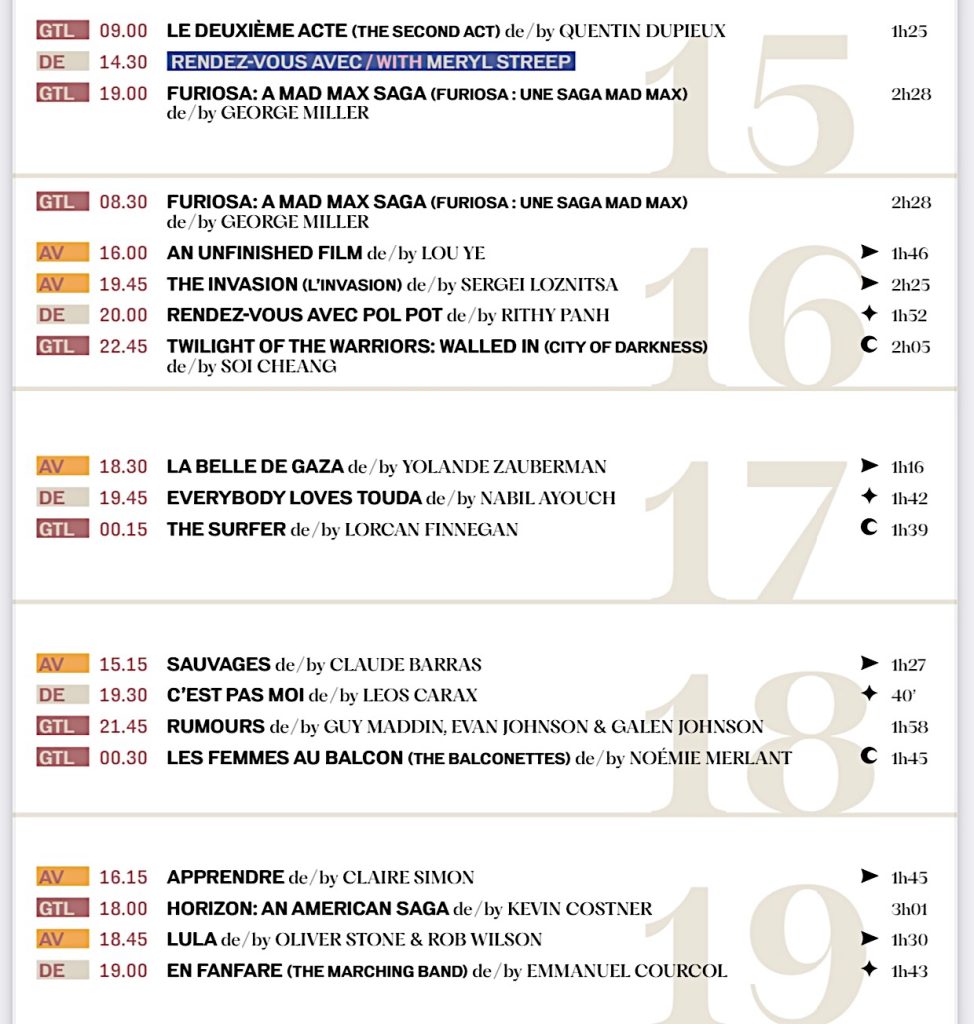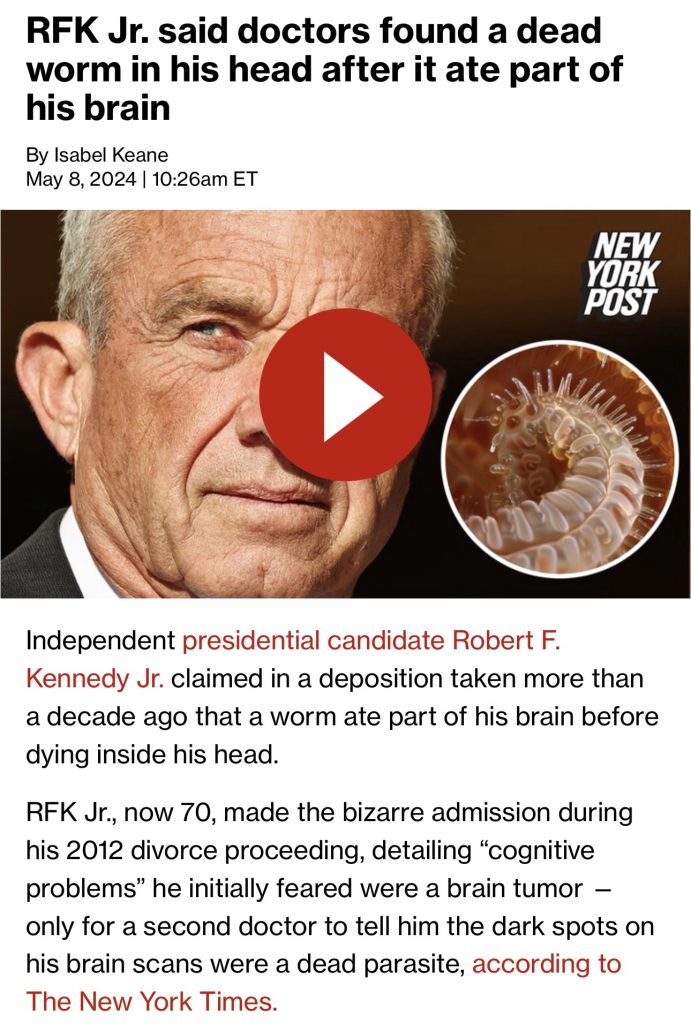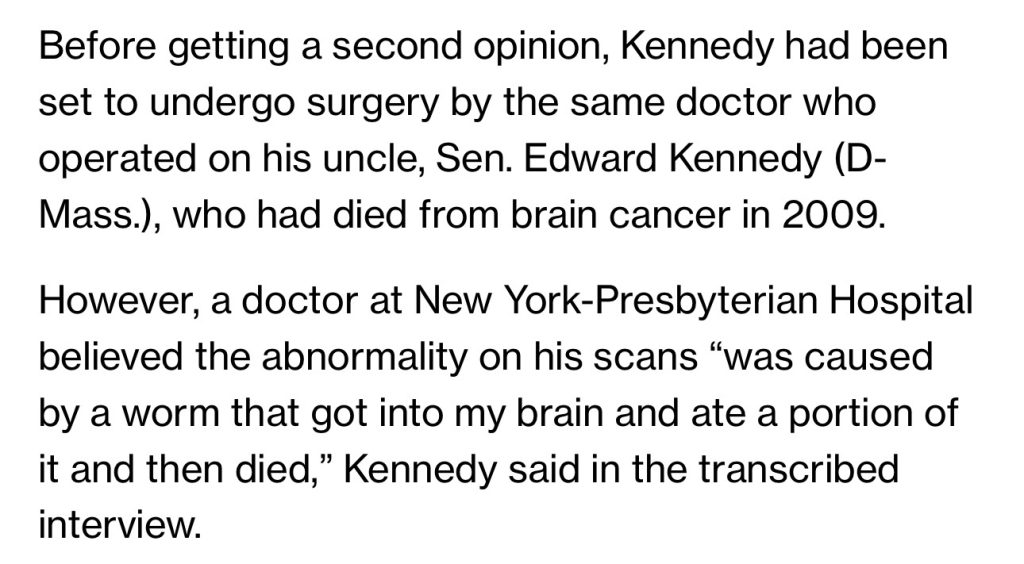I gave a respectful thumbs-up to Matt Reeves‘ Dawn of the Planet of the Apes (’14), which opened two months shy of a decade ago. I didn’t love it quite as much as Rupert Wyatt‘s Rise of the Planet of The Apes, which opened 13 years ago but it was a fine, well-crafted, grade-A film as far as it went.
But I felt myself disengaging when Reeves’ War for the Planet of the Apes (’17) came along. The truth is that I got off the boat. And now Kingdom of the Planet of the Apes is upon us.
I’m honestly debating whether it’s worth my time to see it later today. The first two were exemplary, but now the bloom is off the rose. I don’t mind the idea of seeing Kingdom, but I really don’t see how it matters one way or the other.
Okay, I’ll prpbably see it later today, mainly because of Freya Allan, the pretty lead actress.
13 years ago I went apeshit Rise of the Planet of The Apes, calling it “the best Apes flick ever made, and that includes the original.
“Rise is sharper, tighter, more emotional…lacking a Statue of Liberty finale, okay, but nonetheless with a ‘better’ story in a sense. And without the perfectly styled, Vidal Sassoon ape coifs that bothered me so in the Charlton Heston original. Not one orangutan had a single hair out of that place in that film, the reason being of course that the prosthetic makeup guys felt more compelled to represent the sartorial values of Beverly Hills, ape-appearance-wise, than the corresponding particulars in a world first imagined by French novelist Pierre Boulle.
“Rise is a gripping, compassionate, well-plotted sci-fi fantasy popcorn film — riveting, amusing at times, state-of-the-art CG, movingly acted by performance-capture guy Andy Serkis, etc. No, I’m not exaggerating. It has excitement, intrigue, humanity, empathy, soul. And the story is primarily an ape POV thing — the human actors are strictly backup, speaking the same kind of rote expository dialogue that James Arness, Joan Weldon and Edmund Gwenn spoke in Them!.
“And don’t listen to guys like Lewis Beale, who earlier this evening called Rise a “fun, not-intellectually-taxing summer entertainment.” C’mon…it’s much better than that! It’s a compassionate look at imprisonment and oppression, and a rousing saga of rebellion and revolution. And it all levitates courtesy of some of the best motion-capture CG I’ve ever seen.
“What could have been just another blah-blah origin story has been turned into a simian Spartacus….or more precisely the first act of Spartacus, which ends with the slaves breaking out of the gladiator school in Capua. That’s precisely how Rise concludes, so to speak.

“James Franco plays a nice-guy genetic scientist — intelligent, tactful, bland — who’s trying to find a cure for Alzheimer’s Disease by performing serum tests on apes. He soon realizes that a serum given to a chimp mother named “Bright Eyes” (remember who had that nickname before?) has been passed along to an orphaned baby chimp named Caesar. The little chimp soon proves to be a major-league achiever and learner. Franco also tries out the serum on his Alzheimer’s-afflicted dad (John Lithgow), and it’s Awakenings all over again. But Ceasar’s passion and curiosity leads to complications and the authorities seize and lock him up.
“This is when the Spartacus stuff kicks in. We’re not going to take this any more, fellow apes, and I’m the one to lead you guys out of this, because I’m smart and ballsy and a good strategic thinker. (Harry Potter costar Tom Felton plays roughly the same part that Charles McGraw played in Spartacus. Or the ‘Fritz’ role that Dwight Frye had in Frankenstein.)
“Franco hooks up with the beautiful Freida Pinto early on, but this is of no consequence as she has no extended dialogue scenes of any kind. As always, she’s very pretty. She obviously has to do more that just look great if she’s going to last. Her best chance at showing what she’s got will probably come with Michael Winterbottom‘s Trishna, an Indian-set adaptation of Thomas Hardy‘s Tess of the d’Urbervilles.
“The apes are the soul and the spirit of the film. They’re fascinating, fully-emotional and fully-dimensional characters. Much of Rise is non-verbal, and appropriately so. Serkis, I should add, tends to over-emote at times. The facial expressions he gives to the young Ceasar — the lead ape protagonist — are just a tad too expressive for my taste, a wee bit too “actor”-ish. But I’ll probably be in the minority on this issue.”


